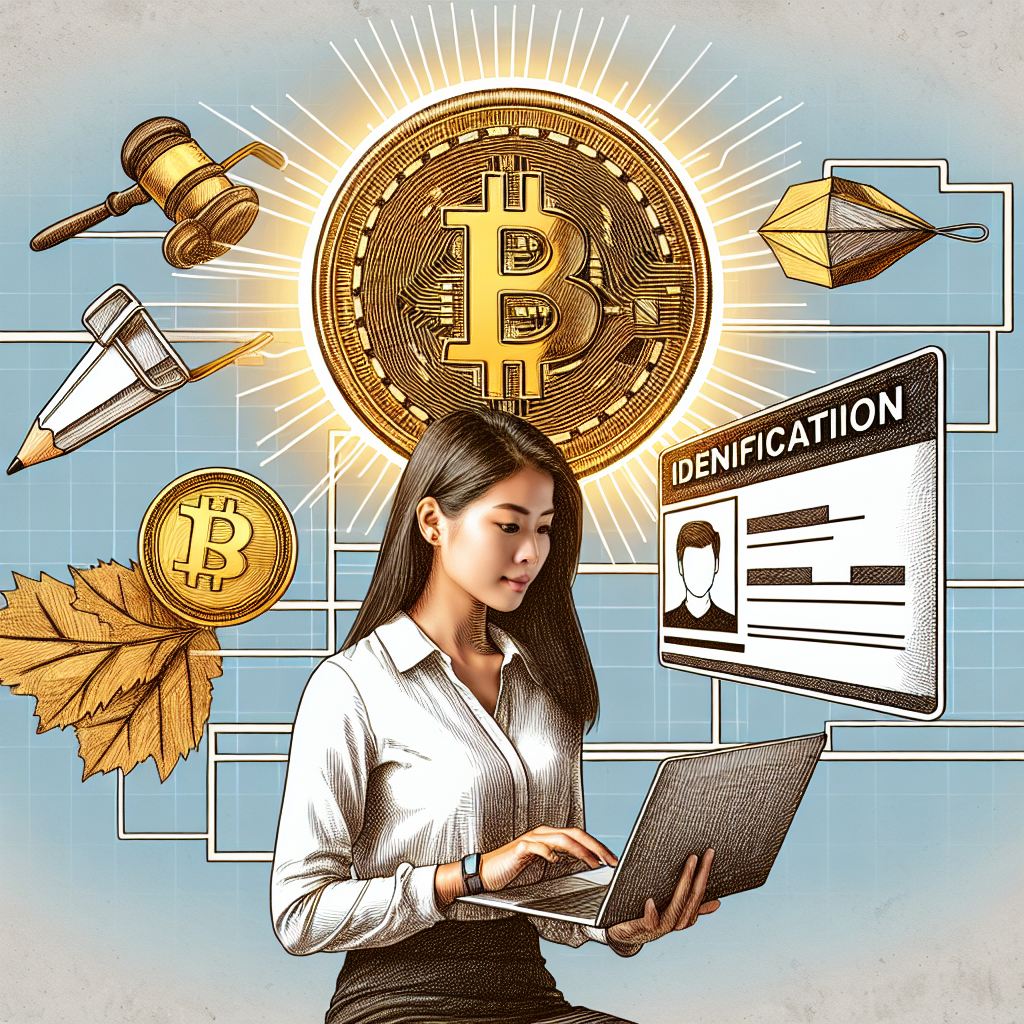
Venturing into the crypto world has its thrills and chills, and understanding its age restriction is one stage you cannot overlook. So, let’s explore how old one might need to be to purchase crypto, alongside other critical aspects such as ways to transact a variety of cryptos like Luna or Tiger King Coin, navigating crypto platforms like Coinbase or cryptocom, and mastering crypto terminologies like APY, Crypto apex, shorting crypto, and more. Additionally, it’s important to know which financial institutions are crypto-friendly, the concept of crypto staking, the operations of a crypto broker, and even where to park at a crypto arena! Beyond that, we will tackle intriguing topics like the crypto billionaires’ fates, crypto’s impact on markets and its trading hours, predicting crypto prices, crypto’s integration with entertainment like casinos, and its broader influences on the tech world. But above all, there’s one burning question that will guide our journey: “How old do you have to be to buy crypto?”
Legal Considerations for Purchasing Cryptocurrency
Entering the world of cryptocurrencies is intriguing, thrilling, and tempting. However, just like any other financially-related venture, certain legal considerations must be made before you delve into this new unique form of currency.
Understanding the Age of Consent
Just like traditional finance, there is an age limit that serves as a barrier for younger audiences to engage in investing in cryptocurrency. The legal age of consent for buying cryptocurrency is typically 18 or 21, depending on the jurisdiction. This is because buying cryptocurrency is seen as a legal agreement, and minors cannot be legally bound to such agreements.
Comparing Laws Across Different Countries
Laws vary according to the country or region. Some might have more tolerant rules while others are stringent. Countries like Japan and Gibraltar are well-regulated and crypto-friendly, while others still do not have clearly established regulations.
Impact of Regulations on Age Restrictions
The purpose of age restrictions is to protect minors from potential risks, such as financial harm and fraudulent activities. However, it’s important to note that the internet has always been a borderless entity, making it challenging for these regulations to be effectively enforced. These restrictions also have the potential to stifle interest and early learning opportunities in the field of cryptocurrency.
Cryptocurrency Platforms and Age Restrictions
Getting your first cryptocurrency might not be as easy as you think, especially as a minor.
Centralized Exchanges Policies
Centralized exchanges, like Coinbase or Binance, have set a strict age limit as part of their policies. These platforms require their users to be 18 years of age and above due to legality issues along with Know Your Customer (KYC) requirements.
Peer-to-Peer Marketplaces and Anonymity
Although not recommended, peer-to-peer marketplaces might provide a loophole for these restrictions. As these platforms are decentralized, they often offer more anonymity. However, they present a higher risk of scams and fraud.
Age Verification Processes and Their Effectiveness
Given the online nature of cryptocurrency, age verification processes can be dimensioned digitally through document submission during the signup process. However, it’s not foolproof, and it’s sometimes easy for comfort for minors to bypass.
Parental Guidance and Custodial Accounts
Actively involving a trusted adult in your crypto journey can bring you a long way. Here’s how to safely navigate crypto with a guardian.
Setting Up Accounts for Minors
Custodial accounts are a safe and regulated method for minors to enter the cryptocurrency world. Parents or guardians can establish these accounts on behalf of their children, providing them with a legal and protected means to own cryptocurrency.
The Role of Guardians in Crypto Investments
Parents and guardians not only set up the accounts but also hold the responsibility of managing these assets. They ensure that digital investments are made wisely, minimize the risk of loss, and safeguard the interests of the minor.
Educational Benefits of Early Exposure to Cryptocurrency
Early engagement can provide a deep understanding and appreciation of this technology, promoting financial literacy and introducing the concept of digital investment. It’s a powerful tool that can be harnessed for learning, sparking curiosity, and encouraging research.
The Risks of Buying Crypto Underage
Breaking rules can come with heavy consequences, especially in the financial realm.
Fraud and Scams Targeting Younger Audiences
Younger audiences can be easier targets for fraudsters who exploit their relative inexperience. They may fall prey to pump-and-dump schemes, dubious coin offerings, or phishing attempts.
Legal Consequences of Bypassing Age Checks
Using false information during age verification processes can lead to serious legal consequences. These might include account suspensions, seized assets, or even legal action.
Addressing the Lack of Financial Literacy
Lack of financial literacy may lead to bad financial decisions. Understanding the market dynamics, trading strategies, and risk management is key to avoiding costly mistakes in cryptocurrency trading and investment.
Crypto Services and Youth Accessibility
While there are some barriers, certain services make cryptocurrency more accessible to younger audiences.
Identifying Age-Friendly Crypto Services
Some crypto services, like online wallets or prepaid crypto cards, allow underaged users to receive and hold small amounts of cryptocurrency. Make sure to verify their credibility before usage.
Using Prepaid Cards and Gift Cards
Prepaid cards or crypto gift cards are age-friendly options. Minors can use them to purchase crypto assets without age limitations.
Alternatives to Purchasing Crypto for Underage Investors
Underage investors can also accumulate cryptocurrency by earning it, for example, by performing small jobs for crypto rewards or accepting it as a gift.
Regulatory Bodies and Age Requirements
Cryptocurrency falls under the purview of regulatory bodies that help ensure safety, fairness, and compliance.
Understanding the Role of Financial Watchdogs
Financial watchdogs, like the Securities and Exchange Commission or the Financial Financial Conduct Authority, play a critical role in protecting investors, ensuring market integrity, and facilitating capital formation.
How Crypto Laws Evolve Over Time
As the crypto market matures, regulatory bodies are continually evolving and adjusting their guidelines to keep pace with this rapidly changing industry.
The Importance of Compliance for Crypto Exchanges
Crypto exchanges need to strictly adhere to the regulations to avoid legal penalties, ensure the security of their user’s assets, and build trust and credibility in the marketplace.
Impact of Decentralization on Age Barriers
Decentralized finance breaks the normal constraints of traditional finance, and age restrictions are no exception.
The Concept of Decentralized Finance (DeFi)
DeFi is a revolutionary concept that uses smart contracts on blockchain technology to replicate traditional financial services in a decentralized manner. This includes activities like lending, borrowing, and trading.
Using Decentralized Exchanges (DEXs)
While not advisable for minors due to high risk, DEXs are platforms that facilitate anonymous and direct peer-to-peer transactions without intermediaries.
The Autonomy of Smart Contracts and Age Limits
Smart contracts are self-executing contracts that don’t require intermediaries. This gives autonomy to users and eliminates potential age barriers, allowing easier access to investments and trading.
Investing in Crypto at An Early Age
This might be a risky endeavor, but it could also be an insightful learning experience for the future generation.
The Pros and Cons of Youth Investments in Crypto
While early investment might offer higher returns and valuable learning experiences, it also comes with high risks, such as financial loss. Therefore, informed decision-making is crucial.
Long-Term Investment Strategies for Young Adults
Long-term investment strategies can offer a lower risk profile. The power of compounding exemplifies how small, steady investments can grow significantly over time.
Cryptocurrency as a Tool for Financial Education
Cryptocurrency could serve as a stimulating tool to drive increased financial literacy, highlighting areas such as digital finance, personal finance, and risk management.
Methods to Buy and Sell Crypto for Minors
While being underage may impose some limitations, there are still ways to get your hands on cryptocurrencies.
Navigating the Process with and Without ID
While most methods to buy crypto require an ID, underage individuals can explore platforms that facilitate the purchase of cryptocurrencies using debit cards, credit cards, or non-traditional methods like gift cards.
Role of Mobile Apps and Parental Controls
Apps with robust parental control features provide an additional layer of security that parents can use to oversee their children’s cryptocurrency activity.
Using Cryptocurrency ATMs for Underage Transactions
Crypto ATMs offer stable on-ramps for minors wanting to exchange cash for cryptocurrency, without the need for ID verification, depending on jurisdiction and amount.
The Future of Crypto Accessibility for All Ages
As cryptocurrency grows in popularity and acceptance, the question of accessibility for all ages becomes more pertinent.
Predicting Changes in Regulatory Policies
As the crypto industry evolves, it’s likely that laws and policies will continue to be refined and tweaked, and that sure includes breaking down age barriers while balancing it with consumer protection.
The Potential of Blockchain to Empower Young Investors
Blockchain technology may democratize financial services and investment opportunities, providing promising opportunities for young investors.
The Role of Education in Shaping Future Crypto Accessibility
Education will undoubtedly play a crucial role in shaping cryptocurrency accessibility. The more people understand about cryptocurrency, the more likely they are to use and accept it, regardless of age.








Leave a Reply